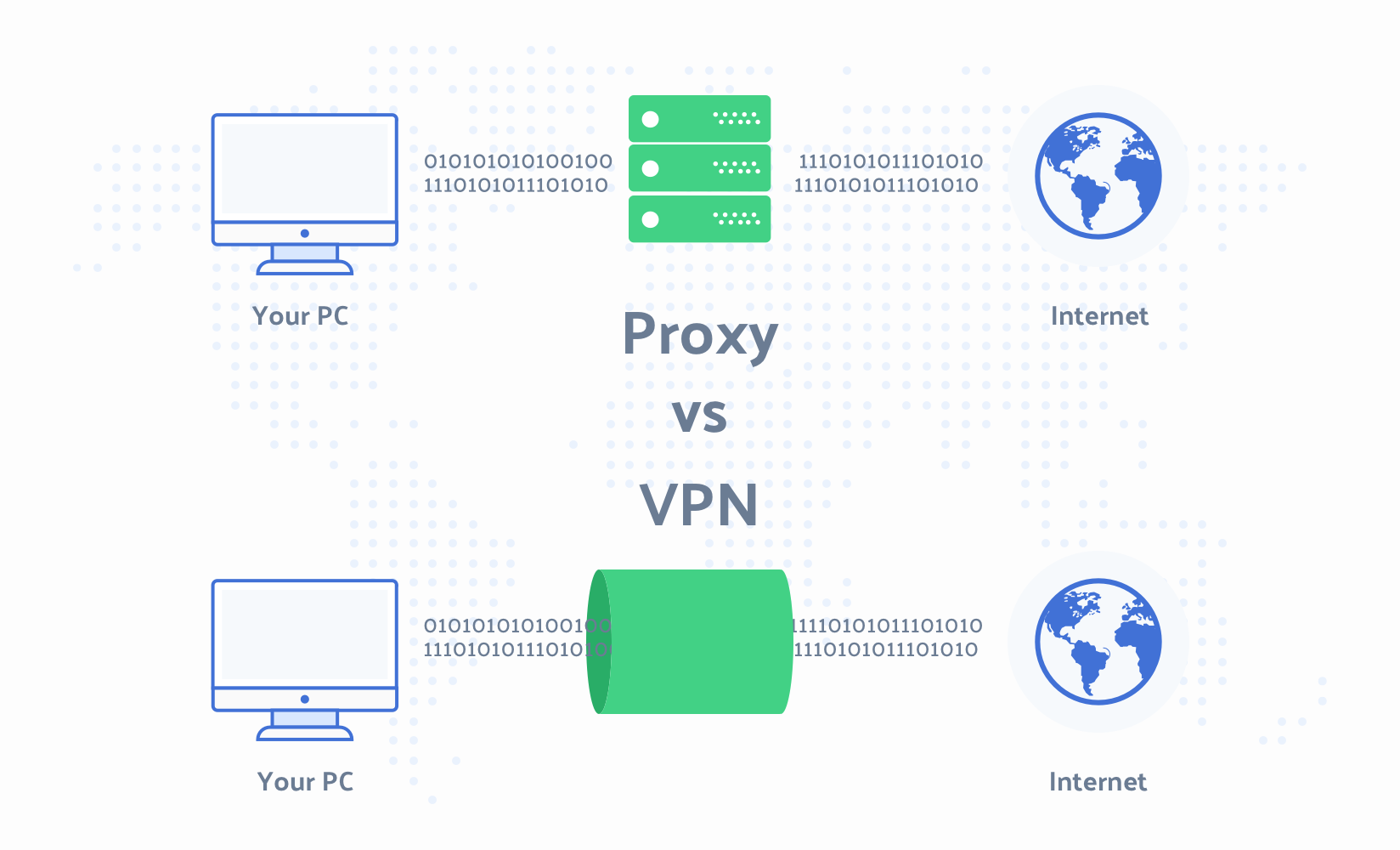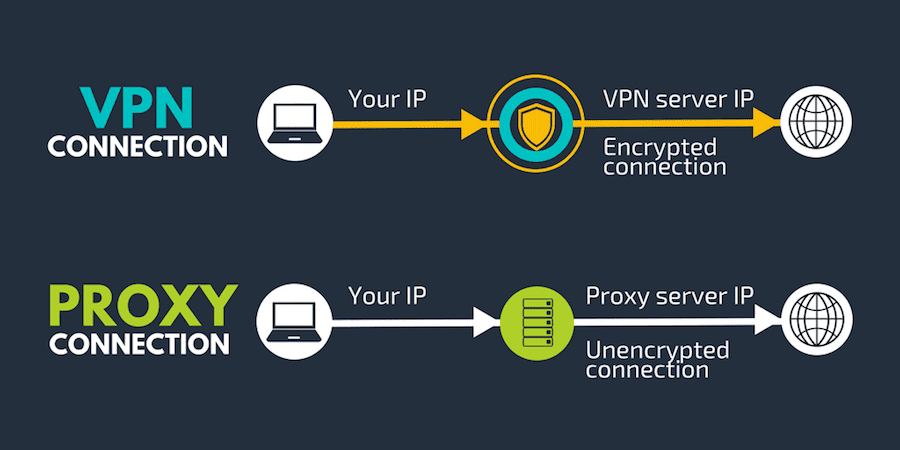Tech
Proxy vs VPN: Which One To Choose For Secure Online Browsing?

Learn about the difference between Proxy vs VPN, their benefits and limitations, and which one you should choose for secure online browsing.
Introduction:
The internet has become an integral part of our lives. It connects us to the world and enables us to access information and communicate with people from different corners.
However, the internet is not as secure as we would like it to be. Hackers, cybercriminals, and government agencies can track, monitor, and even steal our online activities.
To protect our privacy and secure our online activities, we need to use tools like Proxy and VPN.
Proxy and VPN are two popular tools used to mask our online identity and secure our online activities. However, many people are confused about the difference between them and which one to choose for secure online browsing.
This article will explore the difference between Proxy and VPN, their benefits and limitations, and which one you should choose for secure online browsing.
Proxy vs VPN: Privacy And Security
Proxy and VPN are both used to hide our online identity and secure our online activities. However, they work differently and have different levels of security and privacy.
Proxy:
A proxy server acts as an intermediary between your device and the internet. When you use a proxy server, your online requests are first sent to the proxy server, which then sends them to the internet.
The internet sees the proxy server’s IP address instead of your device’s IP address, which masks your online identity.
Benefits of using a proxy:
- Access to geographically restricted content: A proxy server can be used to access content that is restricted in your region or country.
- Faster internet speed: A proxy server can cache frequently accessed websites, which can improve your internet speed.
- Anonymity: A proxy server can mask your online identity and make it difficult for websites and online services to track your activities.
Limitations of using a proxy:
- Limited security: A proxy server does not encrypt your online activities, which means your data can still be intercepted and stolen by hackers, cybercriminals, and government agencies.
- Not suitable for sensitive activities: A proxy server is not suitable for sensitive activities like online banking, shopping, or accessing confidential information, as your data is not encrypted and can be easily intercepted.
VPN:
A VPN (Virtual Private Network) is a private network that uses a public network (like the internet) to connect remote sites or users together.
When you use a VPN, your online activities are encrypted and sent through a secure tunnel to a VPN server. The VPN server then decrypts your activities and sends them to the internet.
Benefits of using a VPN:
- Security: A VPN encrypts your online activities, which means your data is secure and cannot be intercepted and stolen by hackers, cybercriminals, and government agencies.
- Anonymity: A VPN masks your online identity, making it difficult for websites and online services to track your activities.
- Access to geographically restricted content: A VPN can be used to access content that is restricted in your region or country.
Limitations of using a VPN:
- Slower internet speed: A VPN can slow down your internet speed, as your online activities are encrypted and sent through a secure tunnel to a VPN server.
- Some VPN providers keep logs: Some VPN providers keep logs of your online activities, which can compromise your privacy.
Which One To Choose For Secure Online Browsing?
Both Proxy and VPN have their benefits and limitations. The choice between them depends on your specific needs and requirements.
A proxy server may be a good option if you need to access geographically restricted content. A proxy server can also be useful if you are looking for anonymity and some basic security.
However, a VPN is better if you need strong security and privacy. VPNs encrypt your online activities, making it difficult for anyone to intercept and steal your data.
They also offer more anonymity and are suitable for sensitive activities like online banking, shopping, or accessing confidential information.
Moreover, a VPN is highly recommended to secure your online activities from threats if you use public Wi-Fi networks.
Public Wi-Fi networks are vulnerable to hacking and can put your personal information at risk. Using a VPN on public Wi-Fi networks can provide an extra layer of security and protect your data from cybercriminals.
Which One Is Better For Speed And Performance?
When it comes to speed and performance, proxies may have the edge over VPNs in some cases.
Proxies do not encrypt your data or add any extra layers of security, meaning they do not slow down your connection as much as VPNs do.
Proxies can also offer faster speeds if they are located closer to the websites you visit or have less traffic on them.
However, proxies can also have drawbacks in terms of speed and performance. Proxies can be overloaded or unreliable if many users use them at the same time or if they have poor quality or maintenance.
Proxies can also cause compatibility issues with some websites or apps that may not work properly with them.
VPNs can also offer fast speeds and performance if they use advanced encryption protocols and technologies that minimize the impact on your connection.
VPNs can also offer more server options and locations that allow you to choose the best one for your needs.
VPNs can also optimize your connection for specific activities such as streaming or gaming by using features such as SmartPlay or P2P servers.
Conclusion:
In conclusion, Proxy and VPN are two popular tools used to mask our online identity and secure our online activities. They work differently and have different levels of security and privacy.
While Proxy is useful for accessing geographically restricted content and providing some anonymity, VPN is the better option for strong security and privacy, especially for sensitive activities.
When using public Wi-Fi networks, it is highly recommended to use a VPN to secure your online activities from potential threats.
Choosing a reputable VPN service that offers strong encryption and does not keep logs of your online activities for better security and privacy is important.
RELATED CTN NEWS:
How To Find The Best Time To Post On Instagram In 2023? – [+Cheat Sheet]
ChatGPT Banned In Italy Over Security Concerns: Find Out Why?
What Is Digital Transformation Strategy: 6 Key Components & Why It’s Important?
































